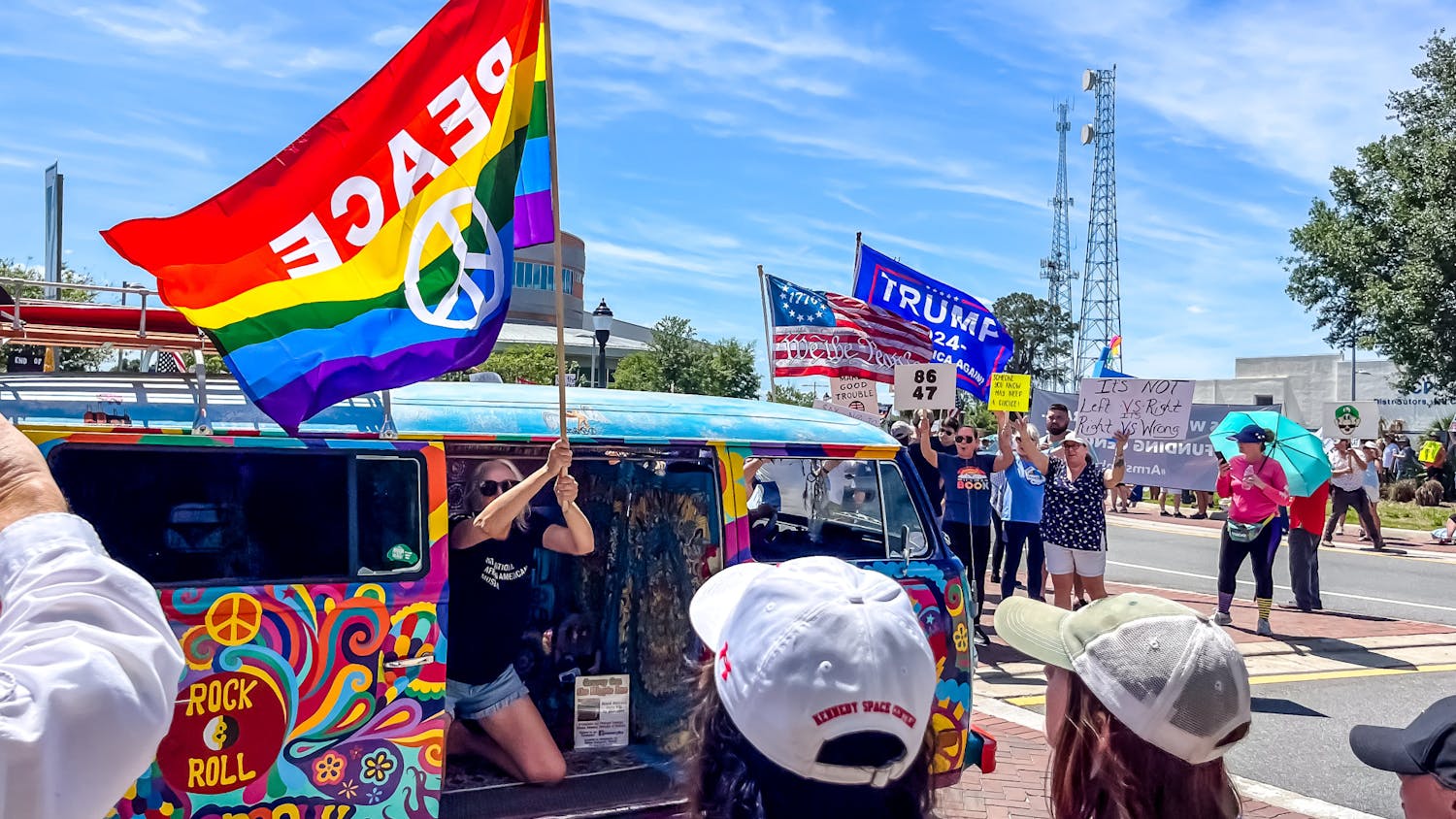If you thought the 70th annual Emmys would be devoid of political statements, you thought wrong.
It was no Golden Globes, where this year a majority of attendees wore all black and sported Time’s Up pins, but stars certainly showed up with some political statements to make. Some wore pins with phrases such as “I Still Believe Anita Hill,” “I Believe Christine Blasey Ford,” and “I Am a Voter.” Some took their statements beyond the red carpet. In their acceptance speeches, Rachel Brosnahan encouraged fans to register to vote in the midterm elections and Ryan Murphy referred to the U.S. as “a country that allows hate to run unchecked.”
Celebrities touting their political opinions is nothing new. Even before the 2016 election, they used their influence to sway voters, endorse candidates and inform the public about policies. Celebrities have run for and held a number of political offices ranging from governor to president of the United States.
President Donald Trump is not the first celebrity to make it to the oval office, and he most likely will not be the last. Since the 2016 election, however, it seems like every celebrity wants to make it clear where they stand in the increasingly divisive political climate. Award shows (as well as social media, press interviews and basically every platform available) give them the opportunity to condemn Brett Kavanaugh, give their thoughts on the newest immigration policy or discuss any number of other hot topics.
Despite the fact that this is nothing new, I have started to notice more and more posts on my Facebook feed denouncing their openness. Some people would rather keep their entertainment lighthearted, while others believe these “elitist” celebrities are in no position to have an opinion about these issues because they are disconnected from the real world. This is a deeply troubling opinion to have, considering that most of the country’s biggest stars are citizens and therefore have every right to be just as involved in government processes as the rest of us.
According to the Credit Suisse Research Institute’s 2017 Global Wealth Report, there are roughly 15,356,000 millionaires in the United States. Meanwhile, the median wealth in the United States lies at $55,876. Essentially, one in every 20 Americans is at least 20 times more wealthy than the median. Considering there are definitely not over 15 million celebrities in the U.S. (and not all celebrities are millionaires), it seems safe to say that the moment we try to exclude them from political discussions on the basis of wealth or distance from the average American, we also exclude millions of other Americans who are in the same boat.
That being said, how do we define what the average American looks like? The U.S. has one of the worst wealth disparities in the world. If the uber rich are no longer qualified to give their opinions on the state of the country, does that mean we exclude those on the opposite end of the spectrum — the extremely poor?
I’m not going to be that person who says that celebrities are just like the rest of us. I’m simply challenging the notion that there is a “rest of us” in the first place. If the U.S. is full of people who live drastically different lives, who’s to say that one opinion is more valid than the next? Just as those naysayers have every right to denounce celebrities’ political opinions on social media, celebrities have the right to announce them — and their opinion should be just as valued as your neighbor’s, your colleague’s and your own.
Katherine Campione is a UF journalism senior. Her column appears on Fridays.






